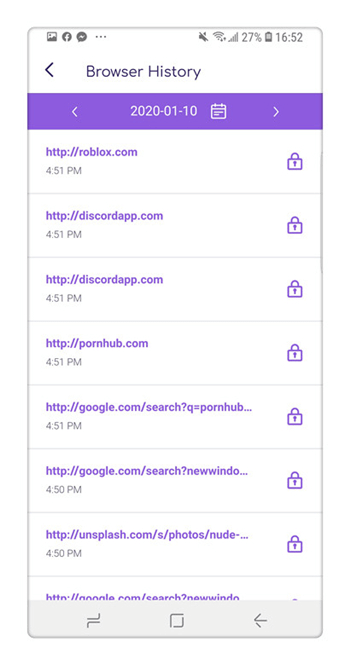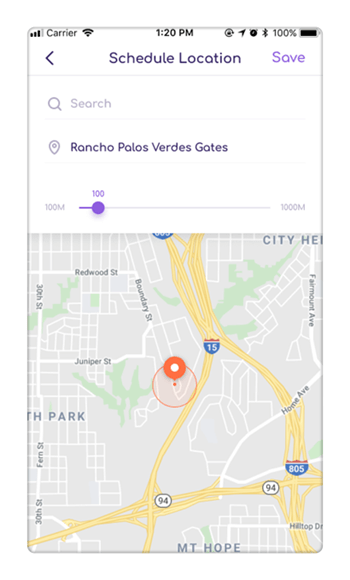Online Bullying: Learn How to Deal with Online Bullying
Ways to Deal with Online Bullying
ALL TOPICS
- Anti Bullying
- Anti-Bullying Tips
- Parenting Tips
Sep 11, 2024 Filed to: Health & Education Proven solutions
When it comes to students being in school, bullying has always been a problem that has plagued the corridors and playgrounds, from relatively small instances of being picked on and name-calling to much more serious physical abuse and the resulting long-term effects.
However, since the rise of mobile phones, computers, and tablets, bullying has taken on another form in the digital world, more commonly referred to as ‘cyberbullying’. Cyberbullying is becoming an increasing problem in schools worldwide, and it’s essential for parents, teachers, and students to be proactive in reducing it and stopping it altogether.
Today, we’re going to explore everything you need to know about cyberbullying, including what’s happening right now, what measures are in place to deal with it, and what you can do to help address any instances of cyberbullying that might be going on in your life.

The Definition of Online Bullying
First, so we’re all on the same page, let’s check out the official definition of online bullying. In short, cyberbullying (also the same as online bullying) is a form of bullying that takes place online. This can occur through any device, including, but not limited to, a mobile phone, a computer, or a laptop.
Most commonly, cyberbullying takes place through social media platforms, such as Facebook and Instagram, but it could happen in chat rooms, on blogs, through email, or other instant messaging services.
Cyberbullying comes in the form of insulting, harassing, belittling, threatening, or aggressively intimidating somebody. This is such a problem because children are having access to these technologies at a young age and feel as though they can act in a bullying way because it’s not face-to-face.
In extreme cases, children may even create fake accounts to remain anonymous to the people they are abusing or picking on. Any form of threat, whether generally speaking, sexually, or racially is classed as bullying.
What Online Bullying Laws Exist?
Now that we’re all aware of what online bullying is, it’s important to note there are already processes, rules, and laws in place that are designed to help minimize the risk of online bullying and punish and educate the perpetrators.
However, what applicable online bullying laws exist depend on which country you’re living in. As of 2017, there is no official legal definition of what cyberbullying is, although existing bullying laws are brought into action if it’s taking place online.
In the US, online bullying laws are known as ‘cyberstalking’. This is a criminal offense and includes, but is not limited to, slander of an individual, online harassment, and anti-stalking. If proven guilty of cyberstalking, the punishments can be severe.
Sentences can range from prison sentences up to 18 months and a $10,000 fine for a fourth-degree charge. However, a second-degree charge can result in up to 10 years in prison and pay a fine up to the amount of $150,000.
The degrees of online bullying laws can vary depending on the severity of the individual case. For example, if someone posts someone that could be deemed bullying, but they instantly regret saying it and don’t post anything malicious again, this won’t be a problem.
However, if an individual is constantly going out of their way, creating multiple posts or content, known as ‘rich media to target one or more people, or even strategizes a bullying campaign to harm someone, this can result in a hefty sentence.
In the US, the UK, and many other countries, other related bullying laws are also brought into action in relevant cases. This includes Public Order Acts, Bullying in the Workplace laws, Obscene Publication Laws, Communication Acts, Computer Misuse Acts, Protection from Harassment Acts, Malicious Communications Acts, and many more.
Of course, again, this will depend on the country you’re in and how these laws are phrased or titled. Young adults over the age of 18 are typically charged as adults, but children can also be charged and will be depending on the severity of the bullying and the specifics of the individual case.
What Can Parents Do for Online Bullying Before Their Kids Get Hurt
With all this information, you might be feeling a little overwhelmed, and that’s understandable. However, even with all these laws in place, it’s incredibly difficult for authorities to manage and keep track of what’s happening on every single child’s social media account.
What’s more, cyberbullying can take place without anybody, but the people involved realizing, and if your child is being bullied or is bullying someone else, and they don’t speak up about it, there’s no way anybody, not you or the teachers, is going to find out.
However, as a parent, there are ways out there you can be proactive in making sure you notice the signs and can help to address and deal with the situation. Here are few things that we can do for our kids to protect kids from online bullying.
- Do some research about online bullying. You need to know about online bullying before providing guidance to your kids and protecting them from online bullying. You can learn about the forms of online bullying and how kids react to it by searching online or seeking help from the local community.
- Show your kids how to handle online bullying. Better get your kids prepared for online bullying before they become the victims of it. Utilize the information that you have learned to show your kids different ways to handle online bullying.
- Don't turn your kids down if they come to you for help. Never question your kids if they come to you asking for help regarding the bullying behavior they received at school.
- Make use of modern technology. As bullying has taken advantage of digital devices' popularity, parents should also keep up the pace by utilizing modern technology. There are plenty of parental control solutions that can help parents monitor kids' digital devices' activity and alert parents for possible online bullying issues. Today, we would like to introduce the most reliable one for you - FamiSafe.
FamiSafe is one of the most feature-rich parental control applications available today and comes with everything you need to discover and prevent cyberbullying in any form. It’s also one of the most effortless solutions that anybody can pick up and use; no technical skills are required.
When it comes to handling online bullying, the Explicit Content Detection feature of FamiSafe is the one you should not miss. We all know that most online bullying happens on social media like Facebook, Twitter, WhatsApp. the Explicit Content Detection feature can monitor the text on social platforms and alert parents if suspicious text like ugly, you fat, die are detected on their kids' devices.
This way, parents can take early action to handle online bullying by discussing their kids' issues to check if they need assistance.
- Location Tracking & Geo-fencing
- App Blocker & Web Filtering
- Web Filtering
- Screen Time Control
- Explicit Content Detection
Except for the Explicit Content Detection, other features of FamiSafe are also of great help when it comes to keeping track of kid's online activity.
- Web Activity Tracking. You can log into your account at any time to see what your child is searching for while they use the internet on their device. You’ll be able to track their search history, as well as checking to see what websites they’re accessing. If your child is searching for bully online, this could indicate a bullying problem.

- Track Real-Time Location & Geofencing Features. In addition to all these online related features, a key feature FamiSafe offers are being able to track your child’s device location in real-time via GPS. This means you can see where your child is and whether they’re skipping school, an indication of bullying.
You can also access geofencing features where you’ll receive a notification if your child breaches a vertical perimeter on the map that you can set up and change at any time.

- Full Device Remote Control. Some children find themselves because they are hooked on social media as they respond and read comments or try to turn things around when bullying online takes place. What’s more, if your child is bullying someone else, you might want to restrict access to their device. This is all possible via FamiSafe.
As you can see, although cyberbullying may seem like a daunting situation to try and tackle, there are laws, systems, processes, and solutions in place to help tackle it. Make sure you’re being proactive with these steps, as well as talking to your child openly and honestly about the risks and effects of bullying to help decrease the risk of it happening, and together, we may even be able to stop it for good.

Thomas Jones
chief Editor